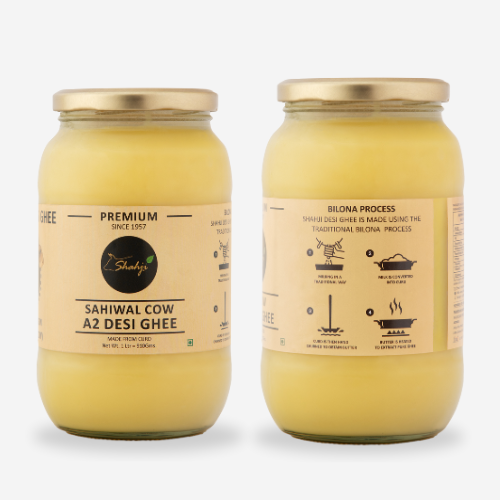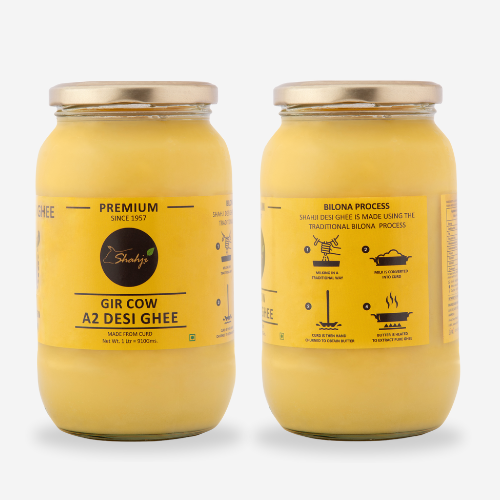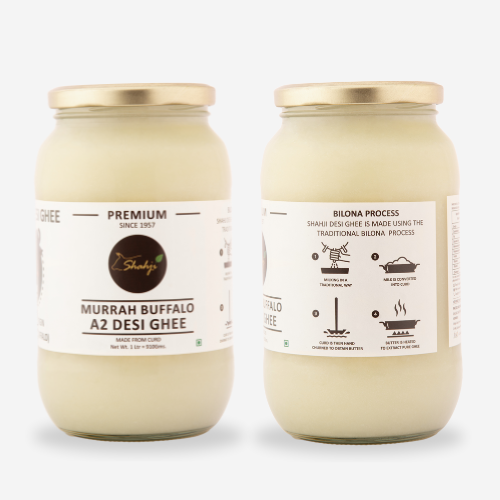Ghee vs Olive Oil – Health & Flavor in Indian Cooking
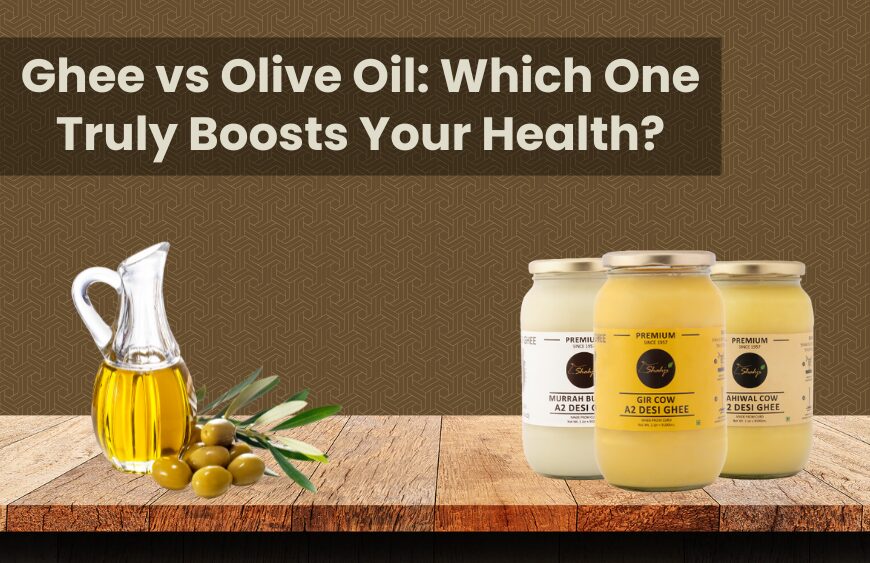
When it comes to Indian cooking, the choice of cooking fat can make or break your culinary experience. Ghee and olive oil are two popular contenders, each boasting unique qualities that contribute to both flavor and health. Ghee, a revered staple in traditional Indian kitchens, is prized for its rich, nutty taste and high smoke point, making it ideal for frying and sautéing. On the other hand, olive oil has carved out its niche globally with its heart-healthy monounsaturated fats and antioxidant properties. But which one truly reigns supreme for authentic Indian dishes while promoting optimal health? In this article, we’ll delve deep into the benefits and characteristics of ghee and olive oil, helping you to make an informed decision. Discover how these two culinary powerhouses can elevate your cooking and well-being, bridging the gap between tradition and modern health consciousness. Read on to unveil the best choice for your kitchen!
Nutritional Overview: Ghee vs Olive Oil
Ghee
- Rich in Essential Nutrients: Contains fat-soluble vitamins A, D, E, and K, which support various bodily functions.
- High in Healthy Fats: Provides a good source of saturated fats, which are essential for hormone production and cellular health.
- Contains Butyric Acid: Supports digestive health and has anti-inflammatory properties.
Olive Oil
- High in Monounsaturated Fats: Particularly extra virgin olive oil (EVOO) is rich in heart-healthy fats.
- Contains Antioxidants: Includes polyphenols and vitamin E, which help combat oxidative stress.
Smoke Point and Cooking Applications
Ghee
- High Smoke Point (~485°F/252°C): Ideal for high-heat cooking methods like frying and sautéing without breaking down.
- Versatile Flavor: Adds a rich, nutty taste to dishes, enhancing the overall culinary experience.
Olive Oil
- Lower Smoke Point (~320°F/160°C): Best suited for low to medium-heat cooking, dressings, and drizzling.
- Delicate Flavor: Complements salads and cold dishes but may not be suitable for high-heat cooking.
Health Benefits
Ghee
- Supports Digestive Health: The presence of butyric acid aids in maintaining a healthy digestive tract.
- Boosts Immunity: Rich in antioxidants and essential vitamins that strengthen the immune system.
- Promotes Heart Health: Contains healthy fats that can help maintain healthy cholesterol levels.
- Enhances Nutrient Absorption: Facilitates the absorption of fat-soluble vitamins and minerals.
Olive Oil
- Cardiovascular Benefits: Monounsaturated fats help reduce bad cholesterol levels, lowering the risk of heart disease.
- Anti-Inflammatory Properties: Antioxidants like polyphenols combat inflammation in the body.
- Supports Brain Health: Nutrients in olive oil contribute to cognitive function and may reduce the risk of neurodegenerative diseases.
Why Choose Shahji A2 Ghee Over Olive Oil?
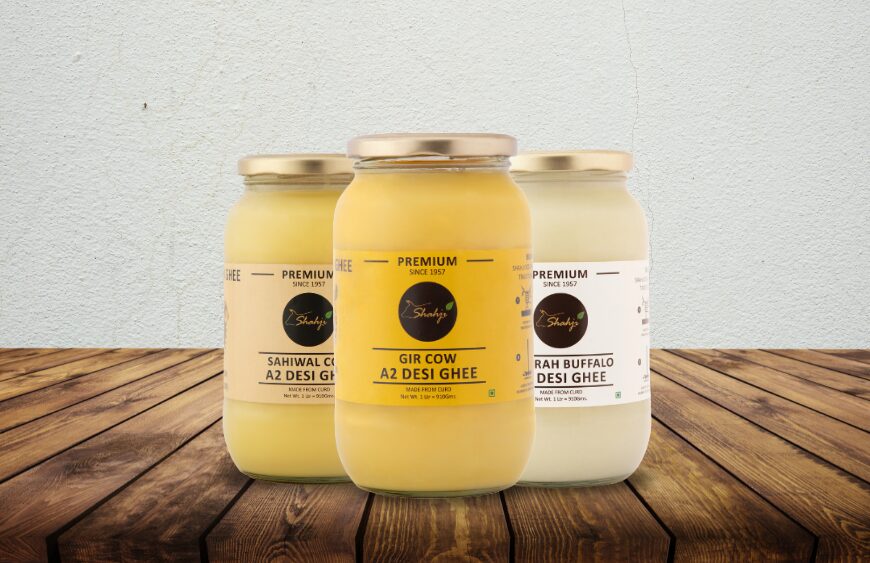
While both ghee and olive oil have their merits, Shahji A2 Ghee offers unique advantages that make it a superior choice for many:
- Traditional Preparation: Crafted using the Vedic Bilona method, ensuring purity and preservation of nutrients.
- Higher Smoke Point: More versatile for various cooking methods, especially high-heat applications.
- Rich Flavor Profile: Enhances the taste of dishes, making it a preferred choice in traditional and modern cuisines.
- Holistic Health Benefits: Supports digestion, immunity, and overall well-being, aligning with Ayurvedic principles.
Incorporating Shahji A2 Ghee into your diet not only elevates your culinary creations but also contributes to a balanced and healthful lifestyle.
Frequently Asked Questions – FAQs
Is ghee more healthy than olive oil?
In Indian households and cooking practices, ghee—particularly Shahji’s A2 Bilona Ghee—is considered more wholesome in many ways. It’s rich in fat-soluble vitamins (A, D, E, and K), supports gut health with butyric acid, and enhances immunity. Ghee also has a higher smoke point than olive oil, making it more suitable for high-heat cooking like frying or tadka. While olive oil is great for cold dishes and salad dressings due to its antioxidants, ghee’s Ayurvedic benefits, digestibility, and traditional value give it an edge for overall wellness and culinary use in Indian cuisine.
Can we replace olive oil with ghee?
Yes, you can absolutely replace olive oil with ghee, especially if you cook Indian or Asian dishes that require high temperatures. Shahji’s A2 Ghee offers a richer flavor, better stability under heat, and added health benefits compared to olive oil. It’s perfect for sautéing, deep-frying, and even baking. Additionally, A2 ghee is lactose-free and easily digestible, making it ideal for people with dairy sensitivities. For those who prioritize flavor, health, and authenticity in cooking, switching to ghee is a smart, health-forward choice.
Ghee or oil—which is better for weight loss?
When it comes to weight loss, it’s not just about the type of fat, but also how your body processes it. A2 ghee contains healthy short-chain and medium-chain fatty acids like CLA (Conjugated Linoleic Acid), which help boost metabolism and mobilize stored fat. It also keeps you full longer, helping reduce unnecessary snacking. While olive oil is lower in saturated fats and useful in Mediterranean diets, ghee offers fat-burning support with better satiety, making it more effective in Indian diets when used in moderation. Choosing ghee like Shahji’s ensures you’re getting a natural, clean source of energy that aligns with wellness goals.
Conclusion
Both ghee and olive oil are valuable additions to a healthy diet, each offering distinct benefits. However, Shahji A2 Ghee stands out due to its traditional preparation, higher smoke point, rich flavor, and comprehensive health advantages. By choosing Shahji A2 Ghee, you’re embracing a time-honored superfood that nourishes the body and delights the palate.

